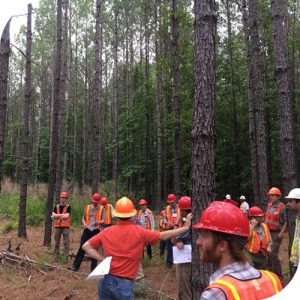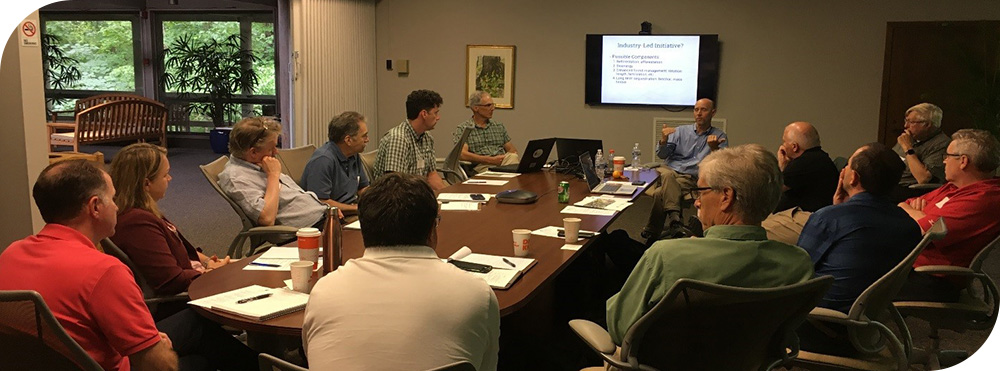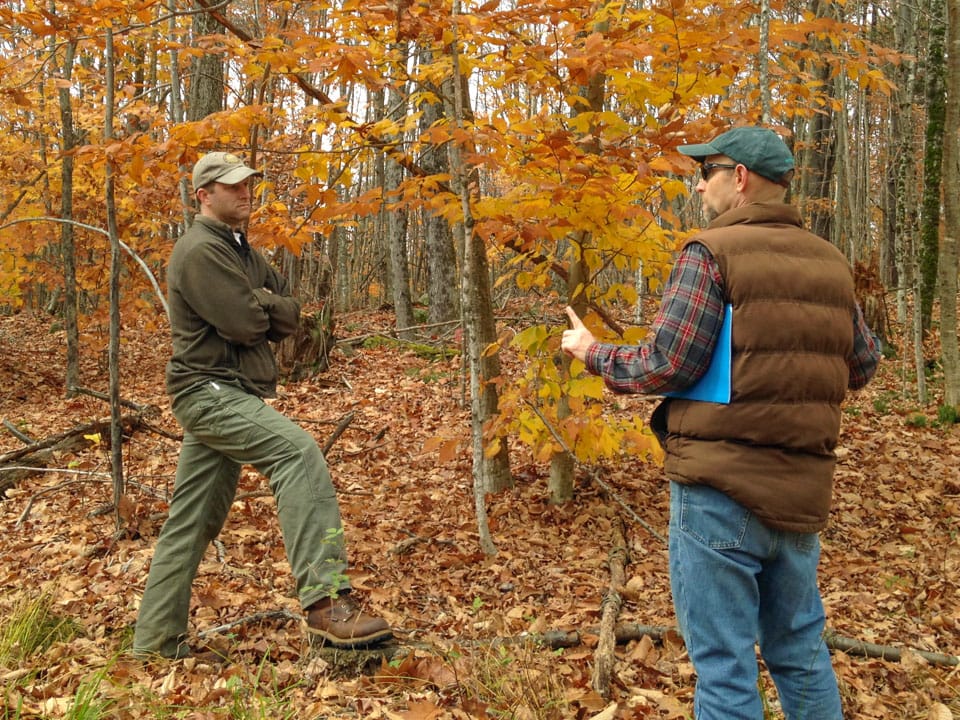In early June, members of Manomet’s Climate Smart Land Network (CSLN) convened in Athens, Georgia, for the annual CSLN Member Gathering. For the third year running, Manomet staff organized a meeting to bring together representatives from companies that manage millions of forested acres for an engaging two days of presentations and in-depth discussion about climate change and forests. The kind of information sharing that happens at these meetings is one of the most valuable aspects of the CSLN, with participants coming in from all over the United States and Canada.

As an added bonus this year, Manomet teamed up with the Center for Advanced Forestry Systems (CAFS)—a nationwide research cooperative funded by the National Science Foundation and industry partners—to co-host a field tour in the Athens area. Tour highlights included a demonstration of a drone that is being used to gather high-resolution imagery for forest research, and visits to a number of active research plots where scientists from the University of Georgia are studying the effects of drought and different levels of management intensity on the growth and development of loblolly pine (the most important timber species in the southern U.S.).
The second day of the meeting was an indoor program led by Eric Walberg (Manomet’s Senior Program Leader for Climate Services) and Jennifer Shakun (Manomet’s Applied Forest Scientist) at the State Botanical Garden of Georgia. The agenda included an invited talk by Dr. Seth Bigelow, Assistant Scientist and Forest Ecologist at the Joseph W. Jones Ecological Research Center in Newton, GA. Dr. Bigelow described climate change adaptation treatments that are being implemented in longleaf pine forests at the Jones Center, as well as the extensive damage wrought by Hurricane Michael last year.

Another meeting highlight was a thoughtful discussion about the role the forest industry might play in helping to mitigate climate change. There have been numerous studies showing that afforestation, reforestation, and enhanced forest management all have a role to play in cost-effective climate mitigation, but carbon markets (as they are currently structured) have not sparked considerable participation by for-profit companies that actively manage millions of timberland acres. The group recognized that natural and working lands are an important component of the climate change policy discussions that are currently happening at the national (and international) level. Ultimately, participants expressed interest in having Manomet help them better understand what the path forward might look like in terms of increasing forest industry participation in mitigation efforts. This is just the beginning of what will be an on-going conversation, but it showcases the kind of big-picture ideas that can emerge when Manomet’s successful engagement with key partners brings the right people to the table.






 Back to all
Back to all

